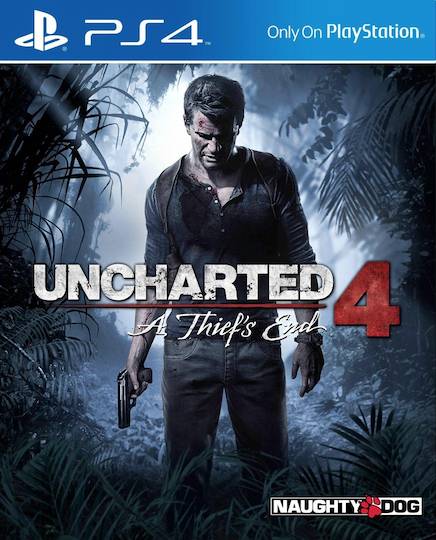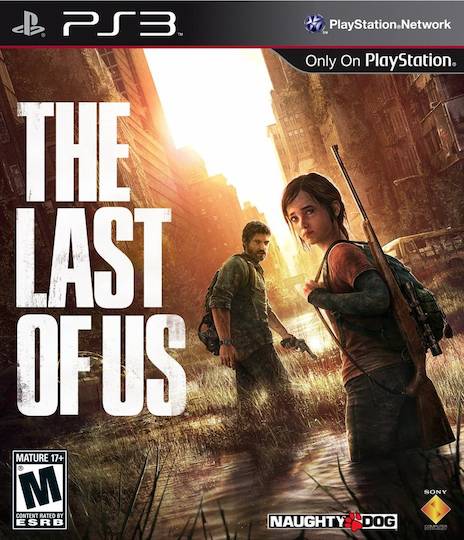Last week my arguments against the Bioshock movie revolved largely around the fact that I do not believe that the game’s experience can be faithfully reproduced in a non-interactive medium. My two arguments in favour of the film aren’t so much counter-arguments to my last observations as they are sort of lateral benefits.
→ 5 Comments![]() Bioshock · Steampunk
Bioshock · Steampunk
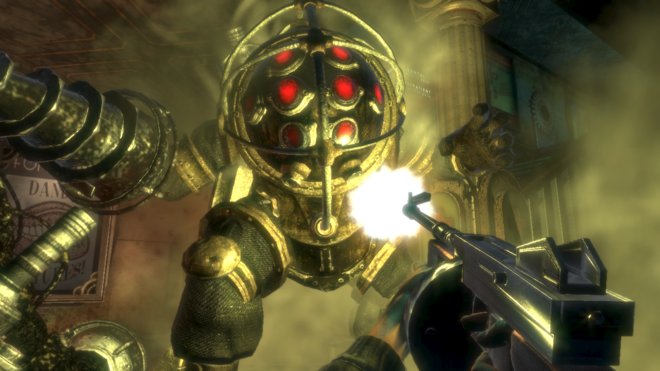
Last Friday it was announced that a Bioshock feature film was in the works, to be helmed by Gore Verbinski of “Pirates of the Caribbean” fame. In theory this is terrific news, Bioshock was one of my favourite games of last year. Its objectivist theme and unique setting made it rich for analysis, and it spawned several terrific essays from some of my favourite games writers.
There have been very few mainstream film releases this year that I’ve had any interest in. I think that the last movie I actually saw in the theatres was the brilliant Hot Fuzz. There is, however, one film coming out before the end of the year that I’ve been eagerly anticipating for quite some time now.
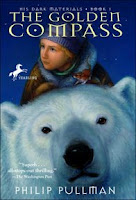 In my last year of high school, I read Philip Pullman’s The Golden Compass, the first in the His Dark Materials trilogy. I was instantly fascinated by Lyra’s world; its strange combination of steampunk, science, magic and religion was unlike anything I had ever imagined. Her parallel universe had its own language derived in part from archaic words: Oil became Naphtha, Greenlanders became Skraelings and electricity became anbaric power. I have read the series many times since then, and Pullman’s imagination never ceases to astound me.
In my last year of high school, I read Philip Pullman’s The Golden Compass, the first in the His Dark Materials trilogy. I was instantly fascinated by Lyra’s world; its strange combination of steampunk, science, magic and religion was unlike anything I had ever imagined. Her parallel universe had its own language derived in part from archaic words: Oil became Naphtha, Greenlanders became Skraelings and electricity became anbaric power. I have read the series many times since then, and Pullman’s imagination never ceases to astound me.
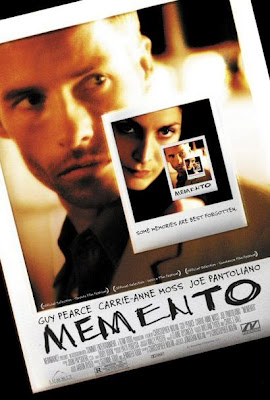 It had been in my movie backlog for ages, but I finally got around to seeing Memento this weekend (and absolutely loved it.) It’s nearly a decade old, but here’s a brief spoiler-free synopsis for the uninitiated: it’s a story told chronologically backwards about Leonard Shelby, a man with short-term memory loss trying to avenge his murdered wife. To remember who people are, where he lives and what he’s doing, he consults relevant notes and pictures in his pockets at all times, keeping the most vital information tattooed on his body.
It had been in my movie backlog for ages, but I finally got around to seeing Memento this weekend (and absolutely loved it.) It’s nearly a decade old, but here’s a brief spoiler-free synopsis for the uninitiated: it’s a story told chronologically backwards about Leonard Shelby, a man with short-term memory loss trying to avenge his murdered wife. To remember who people are, where he lives and what he’s doing, he consults relevant notes and pictures in his pockets at all times, keeping the most vital information tattooed on his body.
While the character’s handicap was extreme, I felt a strong empathy with his condition. I’m a forgetful person by nature and, like Leonard, am constantly relying on external memory to function. Text files, post-it notes, e-mails and address books have become my substitute for real memory. I hardly take the time to remember anything nowadays; birthdays, telephone numbers, assignment due dates and addresses are taking up less and less of my cerebral real estate.
TV Reporter: The world was stunned today by the death of Diego Ricardo, the youngest person on the planet. […] He was 18 years, 4 months, 20 days, 16 hours, and 8 minutes old.
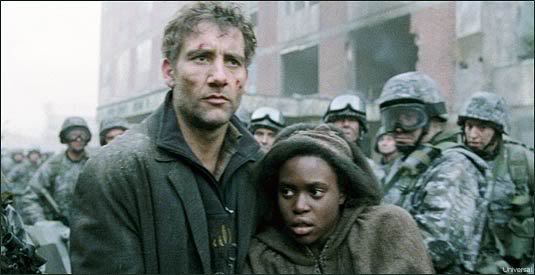
I’ve always had a fascination with narratives set in a dystopian future (see 1984, Brazil, Brave New World, Blade Runner, even Half-Life 2). The good ones evoke a convincing world that could conceivably represent our own future. The great ones use this world to explore philosophical and moral issues. What struck me as unique about the film Children of Men, however, was how it presented a world rocked by an extension of our own contemporary Western issues: divisive immigration policies, xenophobia, terrorism, and overzealous homeland security. This picture of the world looks and feels real; it is by far the most convincing vision of the future I have ever seen.


